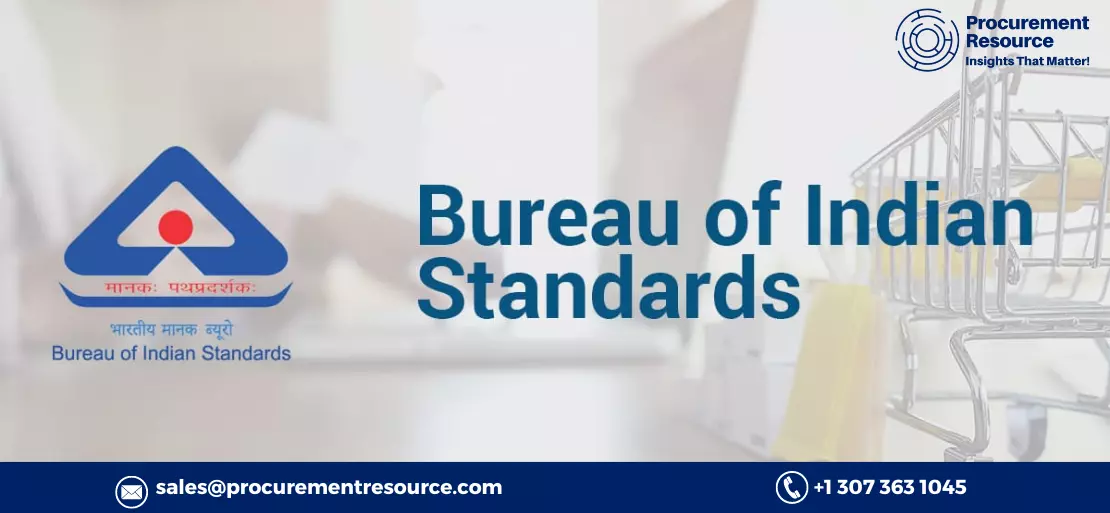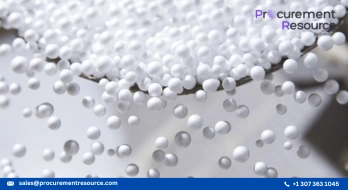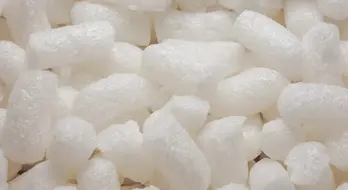The Bureau of Indian Standards (BIS) Certification Mandate for Styrene Monomer (SM) and Acrylonitrile (ACN) Will be Pushed Back by a Year

India has postponed by six months to a year a proposed import certification mandate for three chemicals.
The certification mandate for styrene monomer (SM) and acrylonitrile (ACN) by the Bureau of Indian Standards (BIS) would be moved back a year to April 24, 2024, the Ministry of Chemicals and Fertilisers stated on April 20.
Accreditation for maleic anhydride (MA) will now be required on October 24, 2023.
As a non-tariff barrier against inferior imports, the mandatory BIS certification was expanded to cover more chemicals and petrochemical imports in 2019.
Request Access For the Latest Price Trends of Styrene
Since their introduction in 2019-20, the BIS certification for these chemicals has been extended numerous times to give domestic end-user companies more time to comply with quality control regulations.
Styrene Price Trend
North America
The Styrene market displayed conflicting sentiments due to shifting upstream (crude oil) prices in the regional market.
The prices surged towards the end of the quarter as the demand-supply gap widened along with the cost of crude oil. The US labour shortage and supply chain concerns aggravated the situation.
The regional market's production rate of Styrene was hampered by falling temperatures and the Brazil carnival. The purchasing activity from downstream (Polystyrene, ABS, and SBR) decreased correspondingly, affecting the final prices of Styrene in the US market.
Asia Pacific
Styrene prices in the Asia-Pacific market have been steadily declining due to a slowing manufacturing rate. As a result, suppliers and end users stockpiled the goods.
Furthermore, demand for the product from downstream (polystyrene, ABS, and SBR) was slow in February, impacting final prices proportionally. Furthermore, other factors such as trucker strikes in South Korea and a sluggish supply chain were observed.
The Chinese market remained calm as a result of COVID restrictions and weak product demand. Suppliers received fewer inquiries, which had an impact on final prices in the Asian market.
Europe
The Styrene market displayed unfavourable market sentiments as a result of shifting upstream (crude oil) prices in the global market.
The product's demand fell in tandem with the fluctuating crude oil prices in the local market. While the inflation rate has stabilised, the overall Styrene market has continued to fall.
With rising energy prices and a slowing employment rate, demand for the commodity fell with the region's seasonal shifts. Slow demand in the polymer and styrene industries has impacted final styrene pricing in the European market.
Acrylonitrile Price Trend
North America
The acrylonitrile pricing trend in the United States remained sluggish, with prices falling throughout the quarter due to a lack of demand from downstream Rubber and elastomers companies. The demand dynamics remained stable, and offtakes from rubber and elastomer companies were fairly low.
American Acryl, a downstream Acrylates producer, was shut down, cutting offtakes and boosting inventory levels.
The price trend has stalled, and the price has somewhat improved under stable demand-supply dynamics and higher production costs due to variable upstream Crude oil and Propylene costs.
APAC
Acrylonitrile prices fell in the Asian region due to weak demand from the downstream Acrylates, rubber, and elastomer industries and high inventory levels.
However, the price trend reversed, and prices rose as a result of tight supply and a sudden surge in demand from the retail sector.
The prices fell due to lower cost support as a result of consistently falling feedstock Ammonia prices amid weak demand from fertiliser producers. Simultaneously, propylene feedstock costs fluctuated because of unpredictable crude oil prices.
Europe
The Acrylonitrile pricing trend shifted sentiments in the European region. Prices first declined due to a drop in feedstock prices and weak demand from rubber and acrylic producers.
Feedstock Ammonia prices declined as demand from fertiliser producers fell and the upstream Dutch TTF natural gas futures fell significantly, easing cost support.
Read More About Styrene Production Cost Reports - Get Free Sample Copy in PDF
However, prices rebounded and rose sharply as the availability of feedstock Propylene supplies was stressed as a result of increased sanctions on Russian petroleum products, which impacted production rates. AnQore in the Netherlands ceased down for repairs, and rates in the region rose.
As per Procurement Resource, A proposed import certification mandate for three chemicals in India has been delayed by six months to a year. The Bureau of Indian Standards (BIS) certification mandate for styrene monomer (SM) and acrylonitrile (ACN) would be pushed back a year to April 24, 2024, the Ministry of Chemicals and Fertilisers announced on April 20. Maleic anhydride (MA) accreditation will now be required on October 24, 2023.



.webp)